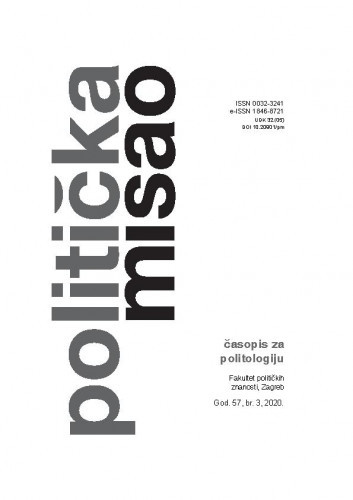Autor u članku ukazuje na suvremenu relevantnost Machiavellijeva nauka sadržanog u Vladaru i Raspravama. U dijalogu s Lefortom i njegovim epohalnim tumačenjem Firentinca (1972) članak nudi alternativno, subverzivno čitanje Machiavellijeve teorije političkog konflikta i pritom, u kritičkom odnosu spram Honnetha (1995), osvjetljuje elemente specifične, makijavelijevske teorije priznanja. Autor tvrdi da je fundamentalno demokratski karakter Machiavellijeva projekta izravno povezan sa sposobnošću plebsa da prepozna svoju novu funkciju u društvenom polju i da na sebe odvažno preuzme queer “identitet”. To je moguće samo uz pomoć i potporu vladara. Plebs u tekstu označava dinamičku koaliciju na različite načine potlačenih skupina. Uz pomoć političke instance pučani trebaju preobraziti svoju težnju da ne budu tlačeni od velikaša u pozitivno usmjerenu težnju da bivstvuju na način koji čuva razliku u odnosu na težnju velikaša za posjedovanjem. Otkrivajući sebstvo kao mjesto nesvodive drugosti, pučani neprestano izumljuju nove načine postojanja u razlici spram “režimā normalnosti” i na taj način postaju nepresušni izvor društvene inovacije koja stoji na dispoziciji čitavom društvu. Poqueeravanje plebsa omogućuje viši stupanj zajedničkog bivstvovanja. Snaga demokratskog društva izravno ovisi o vitalitetu težnje pučana i njihovoj sposobnosti da neprestano osmišljavaju i proizvode nove načine života.; In this paper the author highlights the contemporary relevance of Machiavelli’s teaching as contained in The Prince and Discourses. In a dialogue with Claude Lefort and his groundbreaking interpretation of the Florentine (1972),this paper offers an alternative, subversive reading of Machiavelli’s theory of political conflict. At the same time, the author highlights the elements of a specific Machiavellian theory of recognition through a critical engagement with Honneth (1995). The author argues that the fundamentally democratic character of Machiavelli’s project is directly related to the ability of the plebs to recognize their novel function in the social field and to audaciously adopt queer “identity”. This is made possible only with the help and the support of the prince. In the text, the plebs represent a dynamic collation of diverse groups (of Others) which are being oppressed in the society. The plebs are invited to transform their desire not to be oppressed into a positive desire “to be” and become in such a way that enables them to maintain their difference in contrast to the greats. By discovering the “self” as a place of radical alterity, the plebs ceaselessly invent new modes of being which are opposed to the “regimes of the normal”. In this way the plebs become an inexhaustible source of innovations which are available for the entire citizenry. Queering of the plebs enables a higher degree of (our) common being in the society. The strength of a democratic society directly depends on the vitality of the plebs’ desire and their ability to imagine, produce and sustain new modes of life.
Sažetak

 Politička misao : Croatian political science review : 57,3(2020) / glavni i odgovorni urednik Dejan Jović.
Politička misao : Croatian political science review : 57,3(2020) / glavni i odgovorni urednik Dejan Jović.